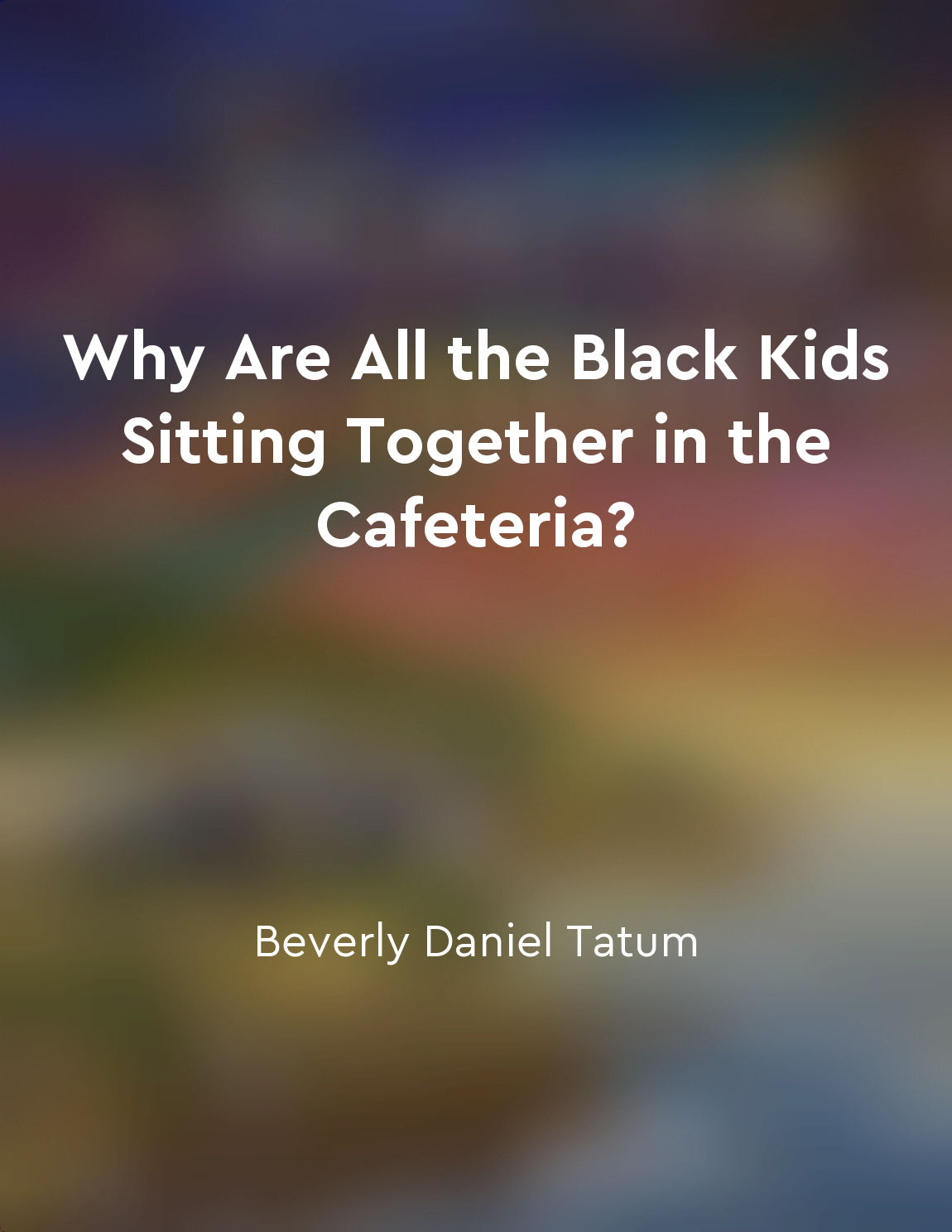Schools can perpetuate social inequalities from "summary" of Schools and Society: A Sociological Approach to Education by Jeanne H. Ballantine,Joan Z. Spade
The educational system is a powerful institution that plays a crucial role in shaping individuals’ life chances and opportunities. However, despite the ideal of equal educational opportunities for all, schools can perpetuate social inequalities. This occurs due to various factors that intersect to create disparities in educational outcomes among different social groups. One key factor is the unequal distribution of resources among schools. Schools in affluent neighborhoods tend to have more funding, better facilities, and higher-quality teachers compared to schools in low-income areas. This disparity in resources can result in unequal educational experiences and outcomes for students from different socioeconomic backgrounds. As a result, students from wealthier families often have access to better educational opportunities and are more likely to succeed academically. Furthermore, the curriculum and teaching practices in schools may also contribute to the perpetuation of social inequalities. The curriculum often reflects the dominant culture and values of society, which may marginalize or exclude students from minority or disadvantaged backgrounds. Additionally, teaching practices that favor certain learning styles or abilities can disadvantage students who do not fit the mold of the “ideal” student. Social inequalities are also perpetuated through tracking and ability grouping in schools. These practices often segregate students based on perceived academic ability, which can have long-lasting consequences for students’ educational trajectories. Students who are placed in lower tracks or groups may receive inferior instruction and fewer opportunities for academic enrichment, ultimately limiting their prospects for success. Moreover, the hidden curriculum in schools can reinforce existing social hierarchies and inequalities. The hidden curriculum refers to the values, norms, and expectations that are implicitly taught in schools through everyday interactions and routines. This can include lessons on conformity, obedience, and deference to authority, which may reinforce existing power structures and perpetuate social inequalities.- Schools can perpetuate social inequalities through various mechanisms such as unequal resource distribution, curriculum and teaching practices, tracking and ability grouping, and the hidden curriculum. Recognizing and addressing these factors is essential for creating a more equitable educational system that provides equal opportunities for all students, regardless of their social background.
Similar Posts
Oppressed must resist indoctrination
The oppressed, in their struggle for liberation, must be wary of falling victim to the tactics of indoctrination employed by th...
Interconnectedness of cultures influences global dynamics
The interconnectedness of cultures has been a fundamental aspect of human societies throughout history. Different cultures have...
We must resist oppression
Oppression is not a rare or occasional phenomenon. It is not an aberration. It is not an exception to the rule of freedom and e...
Economic mobility
Economic mobility is a concept that is often misunderstood or misrepresented in public discourse. Many people believe that econ...
Globalization influences cultural evolution
Globalization has played a significant role in shaping the evolution of cultures around the world. As societies interact more c...
Curriculum should focus on core content
The concept of focusing the curriculum on core content is imperative in providing students with a solid foundation of knowledge...
Educational systems can either reproduce or disrupt inequalities
The educational system plays a critical role in shaping our society. It can either perpetuate existing inequalities or work tow...
Access to resources influences academic success
Access to resources significantly impacts academic success. Students from higher socio-economic backgrounds tend to have greate...

Racial socialization is crucial for all students
Racial socialization is a critical aspect of a student's development, regardless of their race or ethnicity. It involves teachi...

